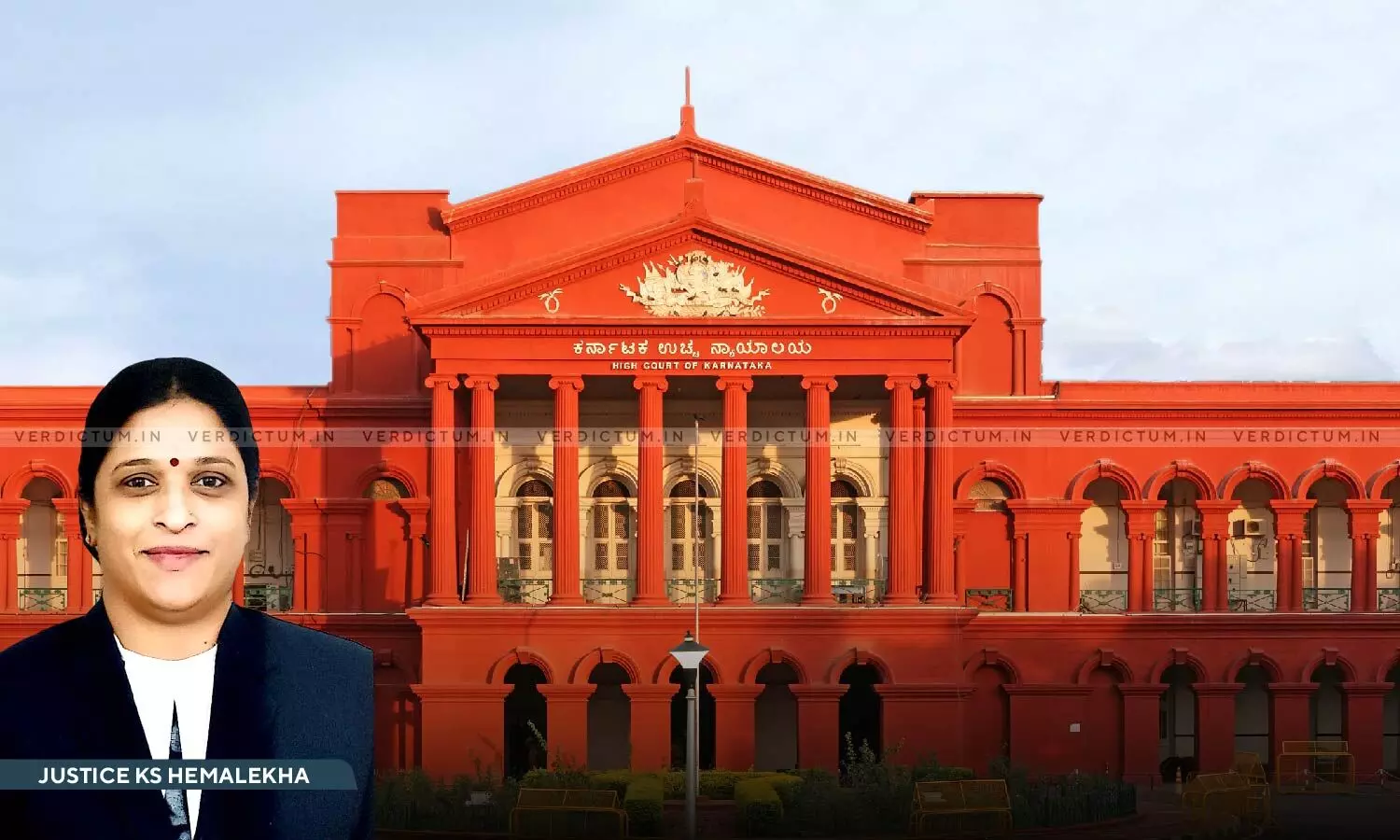
Once An Act Of Theft Or Misappropriation Is Proved, Reinstating An Employee Into Service By Way Of Sympathy Is Uncalled For: Karnataka HC
 |
|The Karnataka High Court has held that once an act of theft or misappropriation is proved, reinstating an employee into service by way of sympathy is uncalled for.
The Court upheld the dismissal of an employee by the Taj West End Hote (petitioner)l, setting aside the Labour Court’s order that had previously reinstated the employee with continuity of service and full back wages. The Court found that the acts of theft and misappropriation, once proven, warrant dismissal, regardless of being small or large, due to the resulting “mistrust by the employer.”
A Single Bench of Justice K.S. Hemalekha observed, “In the present case, the case is of misappropriation, theft, where the charges are serious in nature. The act of theft/misappropriation once proved, either it be a small or large or a small thing, the question is mistrust by the employer, wherein in such cases, it is uncalled for by way of sympathy to reinstate the employee into service.”
Senior Advocate S.N. Murthy appeared for the petitioner, while Advocate K. Srinivasa represented the respondent.
A security guard found the employee working in the kitchen at Taj West End Hotel in possession of an oil sachet hidden in his motorcycle. When the security guard questioned the employee, it led to a scuffle, which resulted in the oil sachet breaking open and spilling over the guard’s wireless set, causing it to malfunction. The employee then sped away on his motorcycle as the guard went to call the duty security officer.
After a complaint was filed by the security guard, the hotel management issued a charge-sheet-cum-suspension pending inquiry against the employee. The Disciplinary Authority dismissed the employee from service. The employee then challenged the dismissal by filing a dispute under Section 10(4-A) of the Industrial Disputes Act, 1947 (the Act). Subsequently, the Labour Court, set aside the order of dismissal, directing the hotel to reinstate him with continuity of service and full back wages.
In contrast to the same, the High Court held that reinstatement on grounds of sympathy was “uncalled for” in such cases. The Court pointed out that the misconduct, as stated by the security guard, was supported by CCTV footage recorded at the scene, which confirmed the presence of the oil sachet and the employee’s subsequent departure from the premises.
“The Labour Court could not on the sympathy alone while exercising the power under Section 11A of ID Act, direct reinstatement and backwages, when the material on record was sufficient to hold the respondent was guilty of charges, the punishment of dismissal for the misconduct cannot be said to be disproportionate, the Labour Court was not justified in substituting the order of dismissal to its own judgment, when it involved a serious case of theft, the nature of work which was entrusted to the respondent was a work of trust, the Labour Court could not have assumed that false charges are made in order to remove him from service, when there is no pleading or evidence whatsoever in this regard either in explanation to the charge-sheet or in the claim statement or in the evidence of the respondent,” the Bench remarked.
Consequently, the Court observed, “The Labour Court has marshled the evidence as though it is criminal trial and on assumption, has come to erroneous conclusion that the charges were falsely framed against the respondent and the respondent has been discriminated and dismissal is highly disproportionate, which is totally contrary to the material on record, the Labour Court was not justified in interfering with the punishment of dismissal, the decisions placed reliance by the learned counsel appearing for the respondent are distinguishable and not applicable to the present facts.”
Accordingly, the High Court allowed the petition.
Cause Title: The Taj West End Hotel v. K. Venkatesh
Appearance:
Petitioner: Senior Advocate S.N. Murthy; Advocate Somashekar
Respondent: Advocate K. Srinivasa